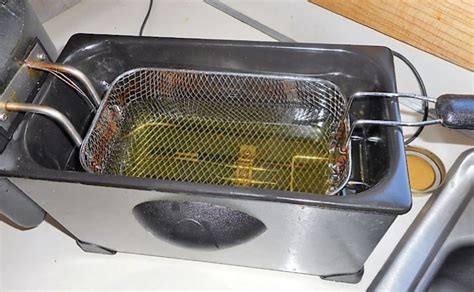Deep Fryer Troubleshooting: Oil Change Solutions
Deep frying is a beloved cooking method, offering crispy textures and rich flavors. However, maintaining a deep fryer requires attention, especially concerning the oil. Old, used oil significantly impacts the taste and quality of your food, and can even pose health risks. This guide addresses common deep fryer oil-related problems and offers effective solutions, ensuring your fryer remains a culinary workhorse for years to come.
Why is Changing Your Deep Fryer Oil So Important?
Regular oil changes are paramount for several reasons:
- Food Quality: Overused oil breaks down, imparting an unpleasant, greasy taste and a less-than-crisp texture to your fried food. This degradation is noticeable even after just a few uses.
- Health Concerns: Repeatedly heating oil creates harmful compounds, such as acrolein and polar compounds. Consuming food cooked in such oil can negatively impact health.
- Equipment Maintenance: Old oil can leave sticky residues, clog filters, and damage the fryer's heating elements, leading to costly repairs or premature failure.
- Fire Hazard: Degraded oil has a lower flash point, increasing the risk of fires.
How Often Should I Change My Deep Fryer Oil?
The frequency of oil changes depends on several factors: including how often you use your fryer, the type of oil, and the foods you fry. However, a general guideline is to change your oil after every 7-10 uses, or at least every 2-3 weeks, even if it hasn't been used extensively.
How Can I Tell if My Deep Fryer Oil Needs Changing?
Several signs indicate it's time for a fresh batch of oil:
- Dark Color: The oil becomes noticeably darker, often turning brown or black.
- Unpleasant Smell: A rancid or burnt odor signifies that the oil has deteriorated.
- Cloudy or Thick Appearance: The oil loses its clarity and becomes thicker or cloudy.
- Excessive Foaming or Smoking: Excessive foaming or smoke during frying indicates that the oil's breakdown is nearing its end.
- Food Doesn't Crisp Properly: If your food isn't crisping up as it usually does, the oil quality is likely the culprit.
How to Properly Change Your Deep Fryer Oil
Changing your deep fryer oil is a straightforward process:
- Turn off and unplug the fryer. Allow it to cool completely before handling.
- Remove the heating element (if removable). Consult your fryer's manual for specific instructions.
- Carefully pour the used oil into a heat-resistant container. Be cautious to avoid spills. Many municipalities have designated oil recycling programs; check your local options for responsible disposal. Never pour used oil down the drain.
- Clean the fryer thoroughly. Use a fryer-safe cleaner or a mixture of hot water and dish soap to remove any lingering oil and residue. Rinse thoroughly.
- Dry the fryer completely. Make sure it's completely dry before adding new oil. Moisture can cause sputtering and potential hazards.
- Add fresh oil. Refer to your fryer's manual for the recommended oil fill line.
- Heat the new oil. Once heated, you're ready to fry again!
What Type of Oil is Best for Deep Frying?
High smoke point oils are best suited for deep frying, as they resist breaking down at high temperatures. Popular choices include:
- Peanut Oil: A classic choice with a high smoke point and neutral flavor.
- Canola Oil: Another excellent choice with a high smoke point and mild flavor.
- Vegetable Oil: A readily available and affordable option, though the smoke point can vary depending on the blend.
What are Some Tips for Extending the Life of My Deep Fryer Oil?
- Filter the oil: Use a fine-mesh strainer or fryer filter to remove food particles after each use. This helps to prevent oil degradation.
- Avoid Overfilling: Overfilling can lead to oil splashing and faster degradation.
- Store Properly: When not in use, store your deep fryer in a cool, dry place.
Troubleshooting: My Deep Fryer Oil Smells Bad Even After Changing It!
If your oil still smells bad even after changing it, the problem might stem from:
- Residue build-up: The fryer might not have been thoroughly cleaned before adding new oil.
- Old oil residue in filters/components: Check and clean or replace any filters or components that might still retain old oil.
Troubleshooting: My Deep Fryer Oil is Smoking Too Much!
Excessive smoking could indicate:
- Overheating: Reduce the temperature setting.
- Oil Degradation: Change the oil.
- Moisture in oil: Ensure the fryer and oil are completely dry before heating.
By following these guidelines and troubleshooting tips, you can keep your deep fryer functioning optimally and continue to enjoy delicious, crispy fried foods for years to come. Remember, regular maintenance, including oil changes, is key to ensuring both the quality of your food and the longevity of your deep fryer.

